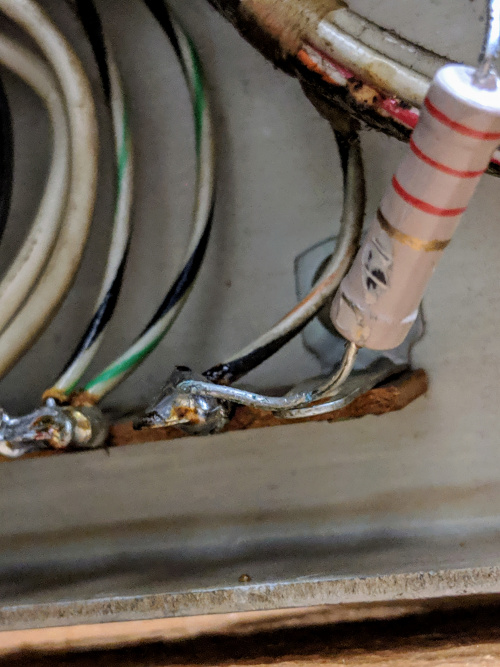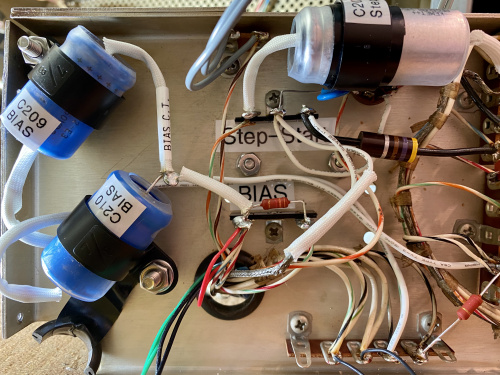Fixing Damaged and Abused R218: Difference between revisions
No edit summary |
m (Gordonp moved page Dealing with the Overheated and Cracked R232 to Fixing Damaged and Abused R218 without leaving a redirect) |
||
| (3 intermediate revisions by the same user not shown) | |||
| Line 12: | Line 12: | ||
[[File:Underside_relayshelf_tidy.jpg|500px|thumb|center|Underside View of the Relay Shelf]] |
[[File:Underside_relayshelf_tidy.jpg|500px|thumb|center|Underside View of the Relay Shelf]] |
||
In this photo, R218 appears in the lower- |
In this photo, R218 appears in the lower-right corner (on a diagonal). R220 is in the center. |
||
[[Repair|Back to Repair]] |
|||
[[Dealing with the RF Output|On to Dealing with the RF Output]] |
|||
Latest revision as of 20:22, 11 November 2020
On the underside of the Relay Shelf, R218 can be seen shorting to the ground-lug. In addition, R218 has physical abuse / chipping / scraping and nearby wires look crispy.
R218 is part of the Bias adjusting circuit: In CW mode it does nothing, allowing the full negative-bias voltage to reach the 4CX1000A and operate Class C. In SSB mode, this R218 is included in a voltage-divider, dropping the voltage down to whatever is necessar for the 200mA plate-idle-current (Class AB1) - often this reduced negative bias for SSB is in the range -35V (my experience with "stock") to -55V (my experience "modified" but the "stock" experience reported by others).
I replaced R218 with a modern 2-watt resistor.
While I was in the neighbourhood, I replaced the divider companion R220 with a new 2-watt 3k3 resistor.
Of note: both R218 and R220 are 5% metal film. They're targetted at the automotive sector, and come with appropriate credentials, a flame-retardant coating, and safety qualifications. Not just your basic resistor :-)
In this photo, R218 appears in the lower-right corner (on a diagonal). R220 is in the center.

